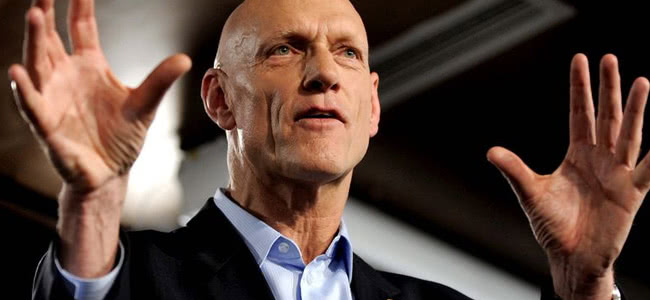It’s been quite a year for Australian musicians with many acts not only venturing overseas but conquering the charts and gaining fan bases worldwide.
There’s no denying that it’s been a successful year for Australian musicians, with many acts conquering the charts and minds of international audiences.
Aside from the obvious Gotye/Kimbra duet that no on has been able to get out of their heads, Tame Impala’s new album Lonerism has also garnered a lot of love – recently coming in at #34 on the US top 30 and at #14 on the UK chart. Other acts such as The Temper Trap have also continued to make waves around the globe.
Yet it seems that despite all of these musical successes, there still isn’t anywhere near enough musical education at an early level in Australian schools.
Last week, The Age reports that 600,000 Australian school students banded together, along with support from some high profile musicians including Mahalia Barnes, in the hopes of gaining some attention for their cause: to get music back into the school curriculum.
Students from across the country, from both private and public schools in both urban and rural areas, simultaneously sang their own rendition of Josh Pyke’s song “Different People (Stand Together)” to raise awareness for the distinct lack of music education in Aussie schools.
The demonstration was organised by Music: Count Us In, a non-profit organisation that aims to raise the profile of music education throughout the country, a problem that’s been a growing concern, but not one that’s had a very high national profile.
Back in 2005, the National Review of School Music Education came to the conclusion that more emphasis needed to be put on music education in Australian schools. Similarly, the 2007 Gonski report revealed an alarming statistic showing that just 23% of government schools are able to provide students a meaningful music education, while The Age points out that 80% of schools in NSW have no classroom music education whatsoever.“We are dumbing down our hearing.” – Timothy Sexton
Aside from the countless studies that have suggested the music education can in fact help increase numeracy and literacy among students. In an open letter, Richard Letts, the executive director of the Music Council Of Australia, stated: “A number of experiments have been undertaken in which music classes are substituted for literacy or numeracy classes. The experimental classes actually achieved higher, not lower, literacy and numeracy scores.”
The demonstration comes ahead of new research that reiterates the importance of music education when learning foreign languages too.
“You have to be able to hear a language, you need have that music education to tune the ear to the pitch and subtleties of a foreign language; it is about developing a degree of aural sophistication across the board,” said educator Timothy Sexton in an interview with The Australian, adding that – quite literally – “we are dumbing down our hearing.”
Along with educational benefits that come as a part of learning music from a young age, it should also be considered that many professional musicians started in primary and high school. It begs the question, if music education is becoming more and more sparse in Australian schools, what does this mean for the future of Australian musicians?
In an interview with Spinner, Lorenzo Sillitto, lead guitarist of The Temper Trap, admitted that his love of music started and was fostered in school. Saying, “I played different musical instruments throughout school. I picked up the guitar at 14 or 15 and never looked back since. I played trombone in school… I played bass in a school jazz band, and that was also the first exposure to writing songs.”
The national statistics and protests from banding schools demonstrates that would-be musicians aren’t getting the proper exposure they need to music through the education system, they aren’t being given the option take music on from a young age, in turn meaning that the chances of Australia producing more quality musicians will diminish.
The Federal Government charged with improving the presence of music education in Australian Schools is none other than the former frontman of Midnight Oil, Peter Garrett.
The Minister for School Education, Early Childhood and Youth has spoken before about the importance of music in the school curriculum, including a 2011 speech to a NSW high school on the subject, as well as showing his support by counting down the performance of Music: Count Us In with 1,800 kids from ACT schools in front of Canberra’s Parliament House, reports Street Corner.
Hopefully, the musician turned politician can find the necessary power and the passion to reinvigorate the school system and its ailing lack of music education.




































